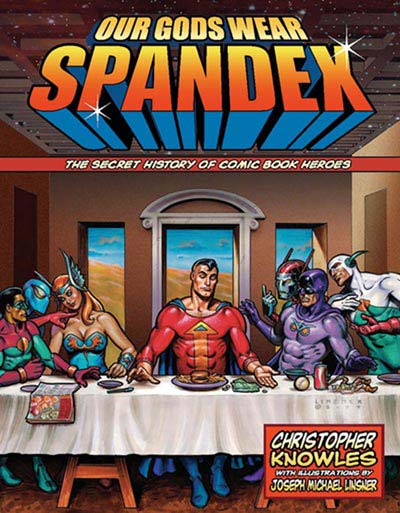Just a couple things I wanted to bring to your attention. [I loved the TED McCloud talk when it first came out -- worth a Permannt Link, now I think about it. Prof.]
The first is that in my internet travels I came across a video on the venerable TED Talks site of Scott McCloud talking comics. Worth a watch, I thinkFrom classfellow Daniel Lin:
The second is a webcomic that I worship on a semi-professional level. It's a bit of an acquired taste but the writing is just stellar. I have recently turned young Lucas Westhaver onto it and made him into an acolyte. It's excellent. It's almost impossible to link to one that can pique your interest immediately, but this one is funny. The characters are just...I am slightly obsessed.
And finally, I am currently watching your friend Ken Steacy auction off prints for one of my favourite charities via webcam. You can find out about that here
Thought that was kind of funny. A sketch he did of Wonder Woman is currently going for about $400 dollars in a live chat auction. Crazy.
This is a web comic called ButterSafe, strange, but interesting. Since the link is to the homepage only, you may find a different comic in place of the current one (text based one), just click back.More...
Also, I am currently following a manga called Pluto. It's a revisit (sic) of the classic Japanese robot genre, as opposed to superheros. It contains Astro Boy and what I think might be Black Jack.
...two websites that look at the religions and sexuality of various comic book characters. I find it really interesting because for a long time these were two elements of comic characters lives that could not be explicitly stated in comics, but often existed as subtext. For example, the Thing of the Fantastic Four was always intended to be Jewish, but that was not explicitly stated for years, likewise the shapeshifting mutant Mystique was always intended to be bisexual, though likewise that could not be explicitly stated (apparently the original idea was that she had been Nightcrawler's FATHER while temporarily male, though later stuff puts her as his mother). The most intriguing idea, and something I've never been able to find explicit reference to was a rumour I heard that the Joker in the 70s was supposed to be gay. Certainly the graphic novels Return of the Dark Night by Frank Miller and Arkham Asylum by Grant Morrison make Joker sexually ambigious, having him gleefully call Batman "darling," cross-dress, use lipstick to highlight his lips, etc. Certainly his obsession with Batman often has a strangely sexual tension (as does Lex Luthor's with Superman, most creepily in the "Superman: Doomsday" movie).
Here's the website. http://www.adherents.com/lit/comics/comic_book_religion.html



